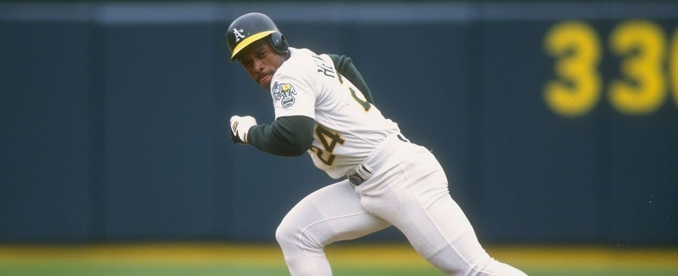Now let’s get to the real history of baseball scandal and whitewash racism. First, contrary, to the pretense of many, baseball was not devoid of scandal and cheating back in the so-called glory years, this is nothing more than nostalgic fantasy. For one thing, gambling was widespread and throwing games was another problem.
[Speaking Truth To Empower]
Barry Bonds record tainted? All baseball records are “tainted?”
On August 7, Bonds swept past “Hammering” Hank Aaron’s lofty 755 homerun record but the milestone was reached without much positive fanfare, with media talking heads continuing to crucify him for his alleged steroid use, although, he has never failed a steroid test.
For the past few days sports pundits have amplified their attack on Bonds. Over and over the claim is made that an “asterisk” needs to be put next to his achievements. Repeatedly, the word “tainted” has been used to suggest that somehow he has defiled the holy sanctity of baseball. To hear these folks tell it, back in the “good old days” the game was beyond reproach. This notion is complete rubbish when one looks at the crooked history of baseball, which we will explore later.
Now, there is much talk about this being the steroid era. If that is true, then why is Bonds being pilloried as its poster boy? Moreover, let’s assume that he did use steroids in this current baseball landscape made apparently level due to widespread usage, then doesn’t that prove that Bonds’ talent is superior to his peers, who have not been able to match his exploits?
Mark McGuire obviously used steroids, given, his disastrously impotent non-testimony before the Congress; yet, his homerun totals pale in comparison to Bonds’. Could it be that the hatred of Bonds involves more than steroids? Is part of this vitriol due to the fact that he is seen as an “uppity,” ungrateful, “surly” negro?
Much of the “evidence” of Bonds steroid use is taken from the book “Game of Shadows” which purportedly uses Bonds’ grand jury testimony to make the case against him. How accurate is this account? Well, that’s just it; we don’t know, for sure. However, for those especially in “mainstream” media, who don’t like Bonds, well, that minor detail doesn’t matter now does it?
The other “evidence” of steroid usage that others point to is that he got bigger and stronger as he approached age 40. I find it very curious nobody raised similar questions about the success and strength of Roger Clemens’ pitching arm in that regard, since pitching effectively is a more age-defying feat than hitting a homerun. The fact of the matter is that Barry Bonds is the greatest player of our generation, bar none. His totals—outside of the homerun statistics—make that abundantly clear.
Now let’s get to the real history of baseball scandal and whitewash racism. First, contrary, to the pretense of many, baseball was not devoid of scandal and cheating back in the so-called glory years, this is nothing more than nostalgic fantasy. For one thing, gambling was widespread and throwing games was another problem. There is significant evidence that legendary players Ty Cobb and Tris Speaker—both of whom were inducted into the Baseball Hall of Fame, without asterisks—were involved in throwing games.
These unsavory acts—which went largely ignored—culminated in the notorious 1919 “Black Sox” World Series fix. In this scandalous chapter of baseball history, “Shoeless” Joe Jackson, a man Babe Ruth credited as being his main reference point as a hitter, was one of several players who took money to fix the outcome and give the Cincinnati Reds the victory. While we are talking about cheating, we know that pitchers like Gaylord Perry, Don Sutton and Don Drysdale are in the Hall of Fame, even though, they used illegal pitches like the grease ball, as well as sandpaper to “doctor” the baseball.
So, why is it that no one proposes putting an “asterisk” next to their names? There is one thing that has given baseball its biggest Black eye: the systematic whiteout of the great Black players who played in the early days of professional baseball.
One of the biggest lies that is either insinuated or told—outright—is that Jackie Robinson was the first Black man to play professional baseball. This is utterly false. In fact, there were several Blacks who played professionally in the waning years of Reconstruction.
Octavio Catto, a Black baseball pioneer, who promoted the Pythians, from Camden, New Jersey, applied for membership in the NABBP (National Association of Base Ball Players.) However, the 1867 Convention passed a resolution saying that clubs “comprised of one or more colored players” would be denied membership. Catto’ Pythians were an all-Black team.
The advent of professional baseball started in 1869, when the NABBP permitted it under their rules, at a time when the practice of playing for money was becoming popular among players. Then in 1871, the National Association of Professional Base Ball Players was formed. On October 10, 1871 Octavio Catto was murdered by a white man. Catto’s death meant the end of the dominant Pythians reign.
The first known Black professional player was Bud Fowler, a pitcher, who played in the 1878 International Association. Then in 1879, Brown University player, William Edward White played for the National League team the Providence Grays. In 1884, two brothers Moses Fleetwood Walker and Welday Walker played for the Toledo Blue Stockings in the American Association. Other players worthy of mention are pitchers George Stovey and Robert Higgins, along with second baseman Frank Grant who hit .340—third highest—in the International League in 1886, but Blacks were pushed out after the 1888 season.
The process of removing Blacks was facilitated by President Rutherford B. Hayes’ Compromise of 1877. This “law” paved the way for total implementation of Jim Crow, and assured that great players like Rube Foster, Cool Papa Bell, Willie Wells and later Josh Gibson would never get the chance to play in the majors.
Josh Gibson is a case in point, because if Gibson had been allowed to play Babe Ruth’s 714 homers would not have been the record Hank Aaron would have had to pass. Gibson, who died at age 35, hit 942 homers in his 17 year career, with a .373 (some say .384) average!
The pundits who pretend to be so offended by Bonds’ breaking of the homerun record claim it is unfair to Hank Aaron. They cynically make it appear as if they are enraged at the desecration of Aaron’s legacy. Why don’t they admit Aaron’s record is “tainted” by the fact that he had to chase perfection with the daily threat of death hanging over his head? Without the daily racist attacks, along with the “no nigger Ruth” chants, Aaron might have hit 1,000 homers. Baseball is as American as apple pie and just as “tainted.”
Benjamin is a member of The Black Star News’ Editorial Board.
To subscribe to or advertise in New York’s leading Pan African weekly investigative newspaper, or to send us a news tip, please call (212) 481-7745 or send a note to [email protected] Also visit out sister publication Harlem Business News www.harlembusinessnews.com






